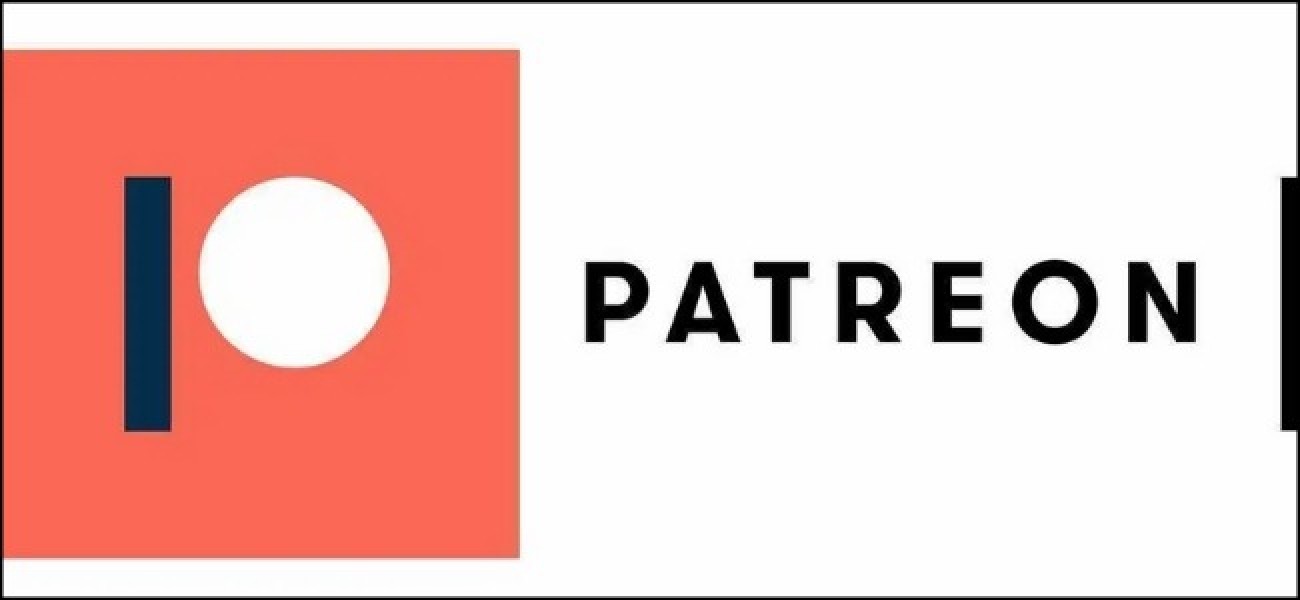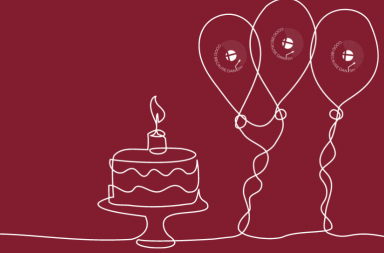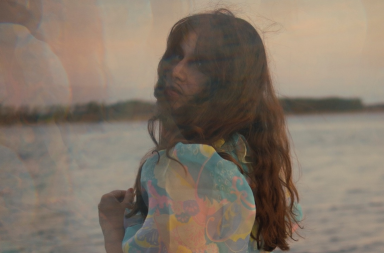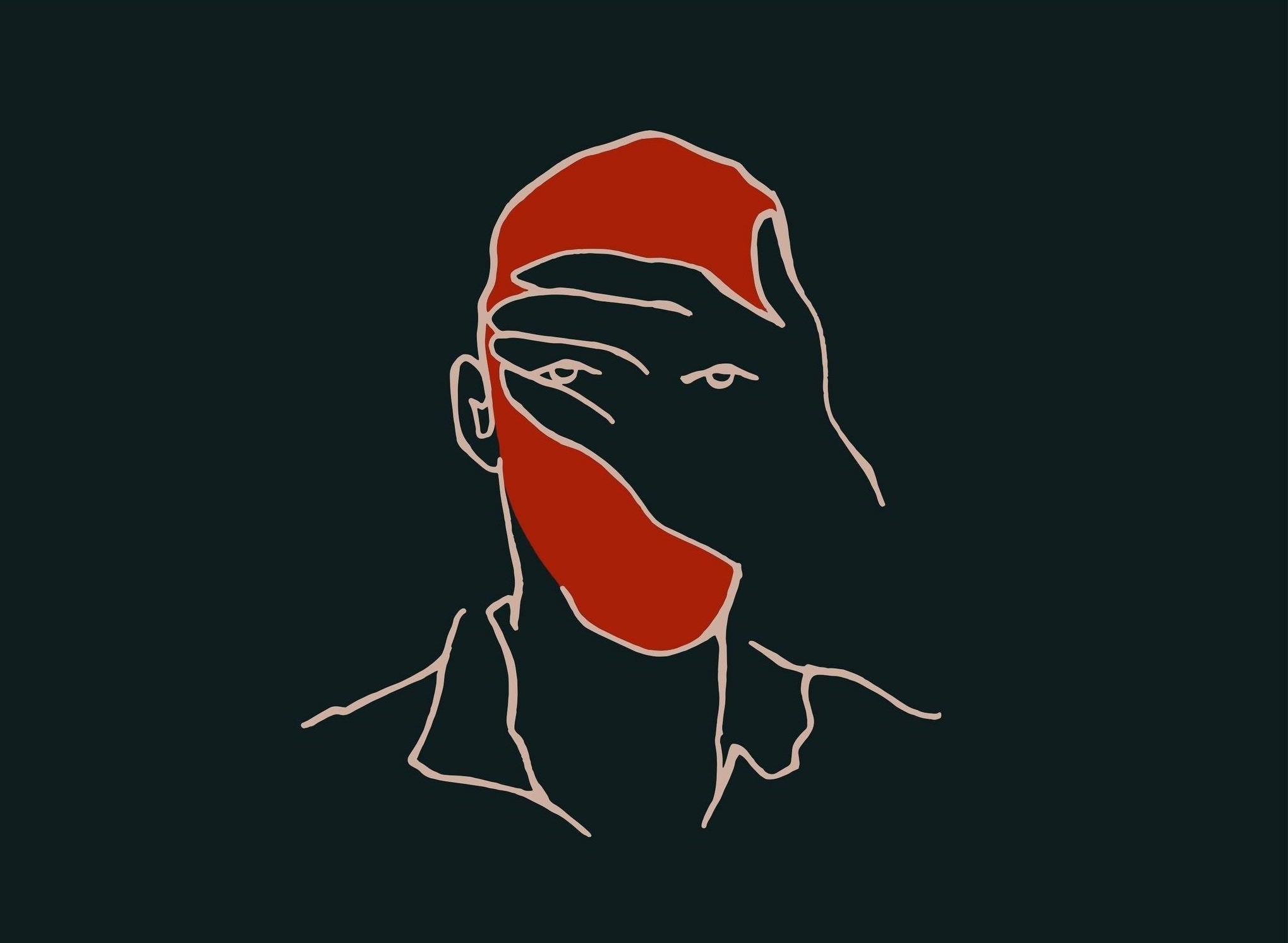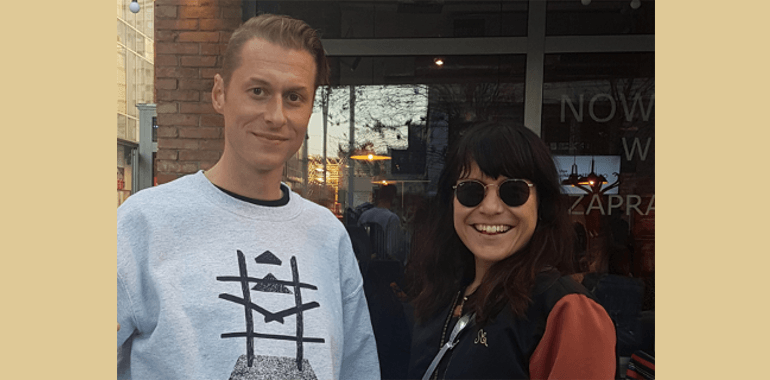
The duo AyOwA was very busy the past months with the release of their EP “Farvel” and supporting Eivør on the European tour.
We got a chance to sit down with Hannah Schneider and Nicolai Kornerup before the concert in Warsaw and chat about their music, about writing songs in Danish and some plans for the future.
Read the interview below and give a listen to AyOwA’s great, a little mysterious EP “Farvel”.
Good because Danish: You make music for quite some time now in different configurations, can you tell us a bit more about how did the AyOwA project start? What made you start writing songs together?
Hannah: As you said, we’ve been making music before and also together, we are friends from a long way back. I think it started when we decided to meet up and make music without any plan for once, and that was really nice to just start in the middle of nowhere and see what came out of it. Then this sound of ours developed.
Nicolai: It was a moment when I started something on the synthesizers and I made some weird sounds. Then, Hannah, you started writing some lyrics to it. You’ve always written in English and suddenly it was in Danish. And that has actually been the form ever since – starting something on the synths and writing Danish lyrics on top of that. That’s the recipe for AyOwA’s music.
Hannah: It sort of found its own sound which was very much a mix of Nicolai and me, so it felt like it wasn’t a part of my solo thing with Nicolai playing there or Nicolai’s productions, so that’s how it started. We did a lot of stuff in between, but then we uploaded the AyOwA music to KarriereKanonen, a really big thing for the Danish artists, and it was chosen to be played on a Danish radio show and suddenly it sort of evolved and we had to figure out how can we do this. So it was sort of by coincidence that it became an actual real music project or a band.
As you said there is a certain style of the sound, something characteristic in it. It is also not so common nowadays that people sing in their native languages. How does it feel to write lyrics in Danish, instead of English?
Hannah: We just talked about it in the car with Eivør (with whom AyOwA went on tour in October). It is a very big and important thing to do at some point, I think. I’ve always written in English and people were saying to me “try to write in Danish, because people will connect more” and so on and I didn’t really feel like it. But then when it happened by itself I think both of us felt that it was sort of special. There is something about the rhythm and there is something the sound of the voice, that changes so drastically and I think it is really interesting to try.
Do you feel it is more personal? Because it is in your native language, so it perhaps comes more “from you”?
Hannah: I think something written in the language which is not your own can be personal. But there is definitely sort of a more personal approach in the Danish lyrics, also because what we write about is very personal.
Nicolai: I think in the lyrics in Danish you kind of like – make them smaller and mean something. I mean, I think your lyrics are always about tiny things meaning big things.
Hannah: That’s a really nice way to put it.
Nicolai: It’s a very detailed style of poetry which I think is something that you can do with the Danish language. I’m sure you can do it in some ways with English as well, but it takes so much like – having experienced so much in this language. But you are a very good writer in English as well, so it is not one or the other. It just creates a different style when it is a different language.

AyOwA performing at Meskalina club, Poznań (PL) – 19/10/2018
Do you think music somehow creates a universal language? People not always understand the lyrics in Danish, but they can still somehow connect to the songs?
Hannah: I think it gives a lot of freedom. We have a story that I sometimes tell on the stage, because I think it is so funny and also liberating. The song “Sommer” which is maybe the most well-known song of ours has been played a lot in the UK and a lot of blogs and radios have been saying that it is like a sexy, lustful, electro summer song. In fact, it is a super sad song and it is a lot about the other side of life than what they’ve been saying in those reviews. But I think it is nice that you can hear kind of whatever you want to hear and as long as you don’t understand the lyrics, you can make your own pictures better than if somebody tells you, you know, “this is the song, it’s about this” and you understand every word. Then it becomes more about the sound than about the actual story.,
Nicolai: I think that music is a universal language, but most people need pictures to put into this music, to make them mean as much as they can. Because sound speaks directly to the heart, but you can’t really understand it unless you have the pictures. That’s why you make music videos, that’s why you create an image, that’s why you create a brand, that’s why everybody uses music to sell other stuff. Because it goes and bypasses somehow some places in the brain. Most part of our brains is the visual part. It is ten times as big as auditive brain and closer to the emotional centre. So people need to have pictures and words put onto the music. So when you sing in a language people don’t understand, they can’t put the actual meaning of the words onto the music, so they will just grab whatever comes to their minds, like – ok, so “Sommer” is about summer, it’s dark, so maybe it’s sexy and lustful. But still, this is the meaning to them, as if they would know that it is about losing someone.
So you think it gives the listener more freedom too?
Hannah: Yes, that’s what I mean. I know from my personal experience – I listen mostly to the Danish-sang music or music sang in English – and I feel when I am at a live show, for example, it is fun to hear some stories about the songs, but if people are too precise what the song is about or the lyrics are too much like “this is what’s going on, feel this, feel that” then I sort of drift away a little bit.
Nicolai: The thing is, you have to keep it a little mysterious. The trend now on YouTube is to do the literal music videos when you do exactly what is being said in the lyrics and it is hilarious, it’s mocking the song. And you can’t really do it on stage, you can’t say exactly what it is. It will take away the magic of the song.
You recently released your second EP as AyOwA – “Farvel” – what is the main message of this release, the idea behind putting these particular songs together?
Hannah: There is a kind of a theme going through it, which is actually the theme which for me has been a part of this project from the beginning, which is losing my father. When we wrote “Sommer”, which was the first song we did for this EP, I have just found out that he was very sick of cancer. So it is a thing that runs through the songs and the texts saying goodbye and letting go and making a place for something beautiful and new. It’s not all “Farvel” EP is about, there’s also a lot of happiness and hope. It’s not a dark EP, but it has a sort of a sorrow in it. I think that goes through the sound as well.
Nicolai: I think that all of our songs have this thing that always has this melancholic vibe, even if it is a fast song, they can always either be sad or happy. Also, if I didn’t know about “Sommer”, what it was really about or what was happening when you wrote it, I wouldn’t be able to tell if it was completely sad. It could be a weird love song. Is it sad or is it not? Because it definitely has a kind of a sad vibe to it, but then again it has… not.
Hannah: It’s actually a little bit the same with “Farvel” because there’s this underline meaning, but it just says about waiting for the sun. It’s like, I’m waiting to feel the sun on my lips, on my skin. It’s the same with “Sommer”, it’s about longing for something that never arrives. Maybe that is one of the most Scandinavian things: it keeps on being f*cking dark in this country and we are always longing for something and I think that longing shines through the sound.
As we mentioned at the beginning, you two have been a part of the Danish music scene since quite some time now. What would you say has changed over the years? What are the strengths of the Danish music industry? We can see more and more Danish bands trying to go abroad and bring attention.
Nicolai: Right now we really have some Danish artists like MØ and Lukas Graham, who actually made it outside of Denmark. Like, really made it. Ten, fifteen years ago there were maybe Mew, they went outside, but they didn’t hit like the top. Now MØ has one of the most played songs last year and made music with great international producers and artists, so now we really have someone who truly made it.
Hannah: But I think that this “Danishness” that you’ve been talking about also never really sorts of saying “I want to go outside, I want to be on tour”, we’re always more like “let’s see what happens”… thinking and so on and now someone has done it. For example, Lukas Graham is like “I’m the greatest” and I think it’s inspirational. We don’t make the same music as him and we are not in the same scene, but! I think it is inspirational to see someone from the very Danish background, you know he grew up in Christiania, just going out there. I think that’s really cool.
You toured with Eivør, released a second EP, what comes next?
Hannah: There is more music coming for sure. We’re working on something right now and we will be playing shows in Denmark in the spring.
Nicolai: We haven’t actually released an album yet, so we have to figure out a way to do that. We have been able to do it for a long time, but we haven’t done it.

